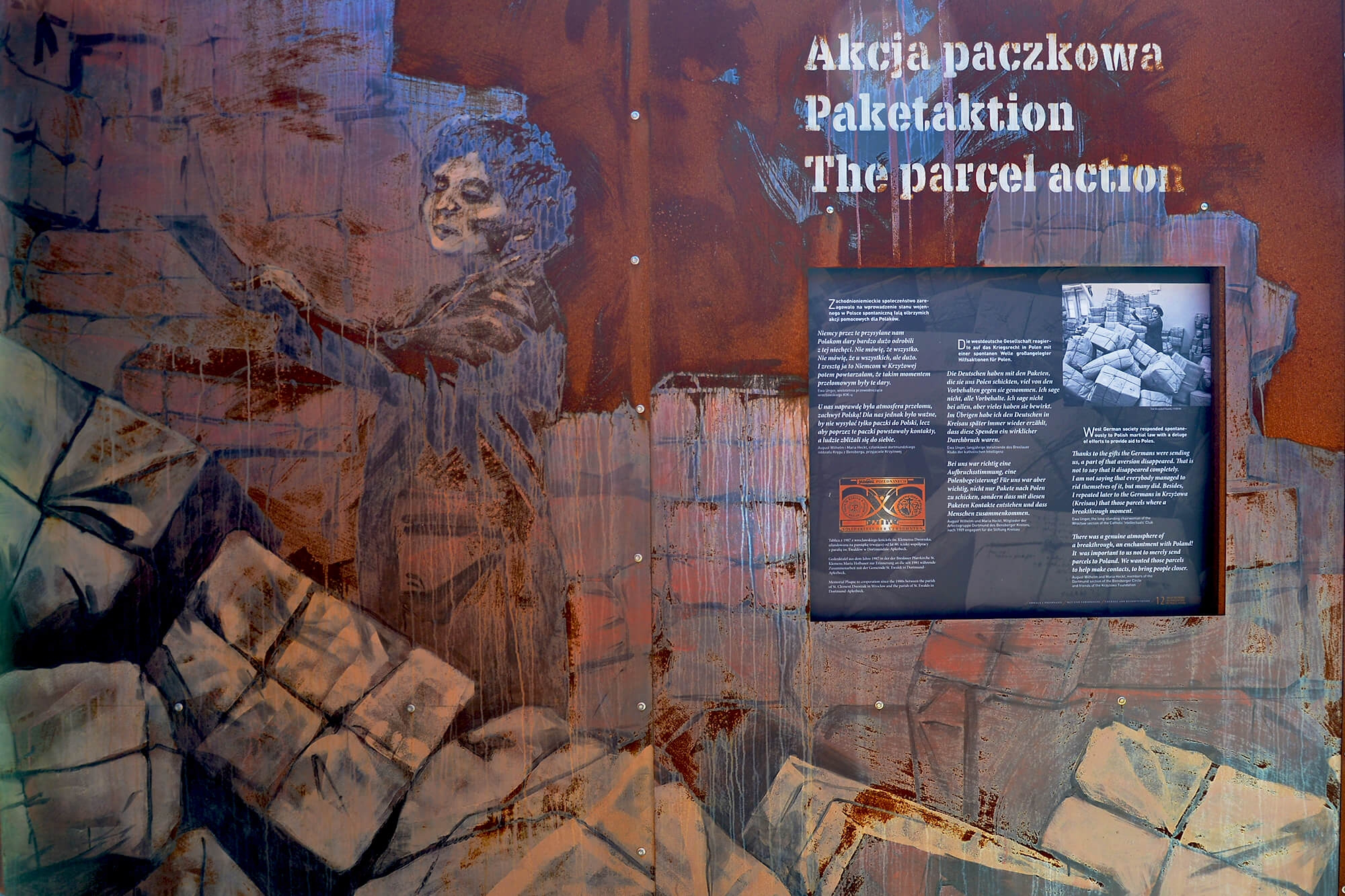Courage and
reconciliation
-
Parcels from the Federal Republic of Germany to Poland
With the imposition of martial law on 13 December 1981 and the worsening of the supply problems in Poland, a big wave of humanitarian aid spread worldwide. Support from the Federal Republic of Germany was already provided at the end of 1980 by charitable organizations, cities, churches, communities and individuals. They sent parcels of food, clothing and medicine, organized aid transports or collected donations. About 30 million parcels were sent from the Federal Republic to Poland, as many as from no other country. The Federal Government supported the initiative with an appeal in the Bundestag (Federal Diet) to show solidarity with Poland. In 1982, there was a temporary exemption of fees for parcels to Poland. The big wave of support lasted until 1984, but after that a lot of people continued sending packages to Poland regularly.
-
Parcels form the German Democratic Republic (GDR) to Poland
People in the GDR also sent parcels to Poland; although in a much lesser extend. There were donation appeals i.a. in schools and on 18 December 1981, the GDR government provided assistance to Poland through the “Red Cross” charity organization and the initiative “Help for the Children of Poland”. A special account for donations with the name "Account 555" has been opened. Donation initiatives also came from various organizations such as the “Free German Youth” or the pioneer organization "Ernst Thälmann", which sent over 2.5 million Christmas packages to Poland in 1981. In addition to that, there were many independent efforts to help, especially by the Church.
The majority of the population supported the initiative, but there were also prejudices in some places. For the Socialist Unity Party (SED) the relief action was a sign of solidarity with the Communist leadership in Poland, more precisely with General Jaruzelski and not with the Polish population. The parcel action in the GDR was monitored by the Ministry for State Security. -
The impact of the care packages on the German-Polish relations
The parcel action is an important event on the way to the German-Polish rapprochement. For a lot of Germans and Poles this marks the first contact with the other country´s citizens. Not only had the parcel action brought the effect of direct help for the Poles but it also enabled a lot of Polish and German people to establish personal relations. For the first time a majority of the Polish population perceived the Germans as solidary and helpful neighbors which led to a decisive decline of prejudices against them. Following these events a lot of German and Polish organizations started to build partnerships. These private and institutional partnerships have prevailed until today and are a big pillar of the German-Polish relations.



